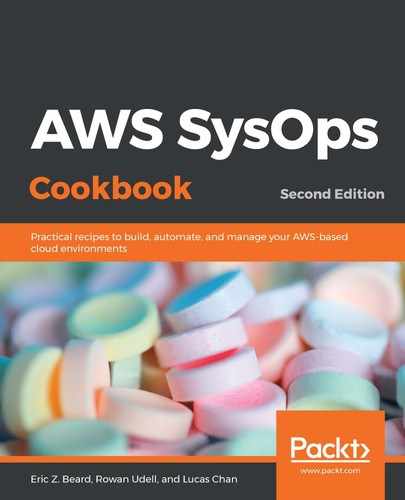In this recipe, we will use Amazon EFS to provide network-based storage to instances.
Some of the benefits of using EFS compared to other AWS services are as follows:
- There is a guaranteed write order between distributed clients.
- There is automatic resizing – no need to pre-allocate and no need to downsize.
- You only pay for the space you use (per GB) – there's no transfer or extra costs.
EFS provides a file storage service that can be accessed simultaneously by many instances, similar to Network Attached Storage (NAS). While not as fast as EBS, it still provides low-latency access. Since it may be accessed by multiple clients at a time, it can reach much higher levels of throughput than EBS. EFS filesystems also scale dynamically in size and so do not need to be pre-allocated or modified during use. Filesystems are stored redundantly across AZs.
The following are some recommended use cases for EFS:
- Home directories
- Serving shared web content
- Content management
EFS performance scales according to the filesystem's size. As the filesystem's size is not pre-allocated, the only way to increase your performance is to add more data to it.
